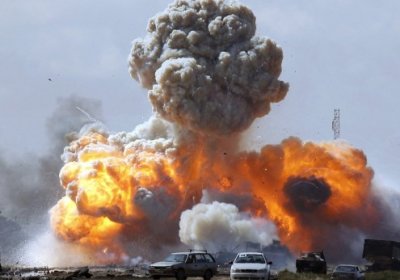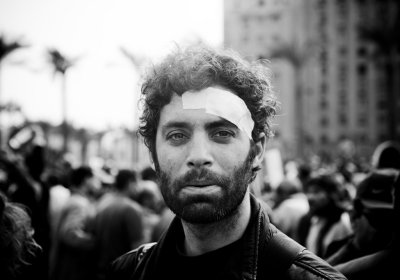About three hundred and forty climate activists, from more than 100 community climate action groups, attended Australia's Climate Action Summit in Melbourne from April 9-11.
Some of the key topics discussed were: a carbon price; fossil fuels such as coal, gas and coal seam gas; working with unions; building a people's power movement; renewable energy campaigns and; bridging the gap between science and politics.
877
Aboriginal rights and queer groups protested outside Glebe Coroner's Court in Sydney to demand an end to black deaths in custody and a new inquiry into the death of transgender Aboriginal woman Veronnica (Paris) Baxter on the 20th anniversary of the Royal Commission into Black Deaths in Custody, April 15.
Indigenous Social Justice Association spokesperson Ray Jackson said: "There is one Aboriginal death in custody per month in Australia. The 339 recommendations of the Commission have not been properly implemented by the states — and so the deaths have not stopped."
The Euro-US attack on Libya has nothing to do with protecting anyone; only the terminally naive believe such nonsense.
It is the West’s response to popular uprisings in strategic, resource-rich regions of the world and the beginning of a war of attrition against the new imperial rival, China.
US President Barack Obama’s historical distinction is now guaranteed. He is the US’s first black president to invade Africa.
Much of the hysteria surrounding the support of Sydney’s Marrickville Council for boycott, divestment and sanctions (BDS) against Israel has focused on the comparison made by the global BDS campaign with the former apartheid system in South Africa.
Pro-Israel politicians and propagandists are quite aware of the power of the comparison. By describing a system where one part of the population has democracy and another doesn’t, it takes away Israel’s claim to legitimacy as a “Jewish democracy”.
The Bahraini government has ordered the dissolution of two opposition political parties. The move is part of its crackdown against the pro-democracy movement that broke out in February.
The al-Wefaq and al-Amal parties were ordered to dissolve for “threatening peace”. The order is in response to their involvement in the protests that called for the removal of the Khalifah royal family, which has ruled the country for more than 200 years, the April 14 Washington Post said.
The question of refugees "is as fundamental a human rights issue as there is", former senator and refugee campaigner Andrew Bartlett told a rally of around 100 in Brisbane on April 9. The rally was organised by the Refugee Action Collective (RAC).
Bartlett said refugees "are among the most vulnerable people on Earth. Forcing them to return home to danger is effectively sending them to their deaths.”
Richard Seymour (“Libya: Spring time for NATO”, GLW #876) has done an admirable job debunking justifications of “humanitarian” wars and its defenders. But his analysis of the internal dynamics of Libya leads him astray — so much so that bold assertions are taken as facts with nothing to back it up.
He says the co-option of the Libyan revolution by NATO is a victory for reaction. Then he says it is no good hoping that the militias will shake themselves free of such constraints if they take power.
Only days before Peru’s general elections on April 10, three protesters were killed and dozens injured by firearm-wielding police near the southern city of Arequipa.
The protesters were taking part in a community uprising against the Tia Maria copper mine proposed by Mexican-based, US-funded Southern Copper. The company has one of the worst environmental track records of any mining company active in Peru.
Fearing that the mine would irredeemably contaminate local water, the residents of Islay took to the streets, despite realising it would put their lives at risk.
In the early morning of April 9, new battles broke out on the streets of Cairo. Protesters fought back against mass repression carried out by the army, leading to two deaths.
In a fresh victory for people’s power in Egypt, protesters defeated the crackdown.
Protesters were demanding former dictator Hosni Mubarak and all corrupt officials from his regime be charged. Protesters remained in Cairo’s Tahrir Square late into the night before the army moved in.
Global politics has taken a dramatic turn this year with the uprisings in the Arab world successfully overthrowing dictatorial regimes, and inspiring democracy movements in countries throughout the region.
People who are fed up with corruption, repression and low living standards have stood up and fought for their rights and won many gains. What the movements in the Arab world have shown the people of the world is that no matter how strong governments are, people united in struggle can defeat them.
Peruvians went to the polls to elect a new president on April 10.
In a first round result reminiscent of the 2006 election, the electorate has sent the previously languishing “left-nationalist” candidate Ollanta Humala (of the Gana Peru alliance) through to the presidential runoff on June 5.
As in 2006, Humala will face a candidate representing elite interests: Keiko Fujimori, the daughter of ex-president and architect of Peru’s neoliberal development model, Alberto Fujimori.
Wall Street has continued erecting monuments to its own greed. The British Guardian reported on April 12 that Goldman Sachs’ paid its top five directors almost US$70 million in 2010.
The latest United States Department of Labor’s Bureau of Labor Statistics report, released on 27 July 2010, said civilian workers’ median hourly wage was $16.55. Private industry workers received $15.70 and state and local government workers received $22.04.
The top Goldman Sachs directors, on the other hand, earned an average $38,356 each day for 2010.
- Previous page
- Page 3
- Next page








